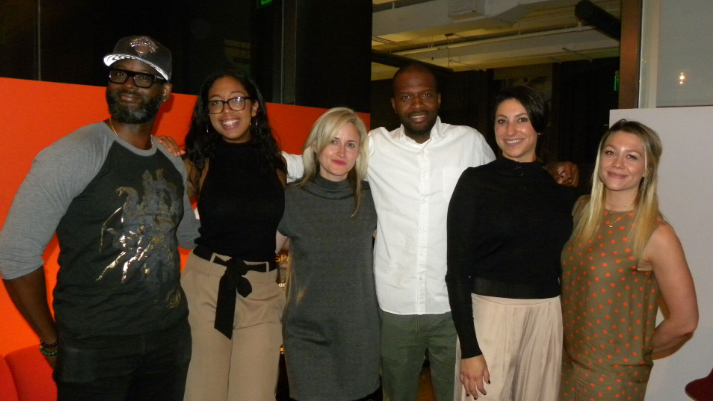
From the release:
“If you have to count the number of black faces in your office, then you’ve got a problem because no one’s counting the white people.” So said Wunderman Thompson’s Keni Thacker at a SPARKED Connections panel discussion on boosting diversity and inclusion in the creative industries, which took place on Oct. 3 at Moving Picture Company’s New York studio.
SPARKED is an inclusive networking organization created by Isabelle du Plessis, Head of Marketing at The Mill in New York, and Jenny Natelson, a Production Manager at Grey. It was designed to help diversify the industry through a democratized approach to networking. Through free New York events, the organization hopes to create conversation and action around diversity and inclusion in ways that can effect positive change.
The panel at MPC included Thacker, who created the agency’s Young Commodores program, which provides college and high school advertising students with an opportunity to apply what they’re learning in the classroom to real-life advertising and business situations. Also on the panel were Monica Tyson, a Taylor James Account Executive whose production company, Come Thru, tells stories through the female lens; Cat Gulácsy, a VFX talent acquisition specialist who’s also Co-Chair of the New York Chapter of ACCESS: VFX, a diversity initiative for the VFX industry; and Bilali Mack, a Flame Artist at MPC who began his career in Boston at Brickyard VFX and later worked at Smoke & Mirrors in New York. He’s currently in post-production for his short film, “Born Ben,” a documentary that shines a light on what it’s like to be born into society with a disability.
The conversation, which included a lively Q&A session, was filled with observations, insights, and advice on how people working at companies across the creative spectrum, from ad agencies to production companies to post studios, can open doors, create opportunities and provide mentorship, all in an effort to help broaden the talent pool.
Introducing the session, SPARKED’s du Plessis said that while talk about diversity is great, “the big question is, how can we have conversations that matter?” The goal of these events, she added, was not just to allow people to connect, but for action plans to arise that create advocacy at high levels within agencies, studios, and other creative companies, as well as motiving people to take mentorship roles.
All on the panel agreed that exposure to careers in areas like production, VFX, and agency creative is of paramount importance. “Companies in VFX are reaching down to the high school level to familiarize young people with the industry,” said Gulácsy, while Thacker noted that his Young Commodores group at Wunderman Thompson, which he described as a “high school-college mashup,” is actually producing work that runs in the marketplace.
MPC’s Mack, who credited his mother’s insistence that he attend art school for getting him to where he is now, noted that having access to people in the business, and a route in which to get exposure, is vitally important. “It’s hard to get these opportunities,” he said. “I was lucky, in that I had a friend in the business. But minority kids often have no role models to show them the way.” He added, “We need to not just reach out to kids, but to their parents as well. Many of them don’t know about these fields, and we need to show these opportunities to them, too.”
Natelson noted that many people in the business are often influenced by unconscious biases they may have, “and that the role of advocates is to help people move beyond these biases,” particularly people in positions of power or influence.
Thacker, whose comment about counting black faces was met with a round of applause, said the real issue is the need to get more positions for people of color and to make them stick. “It’s important that programs for diversity and inclusion translate into hires, and those hires turn into leaders,” he said.
